Do Indoor Plants Need Special Care in the Winter? 4 Tips Plant Parents Should Abide By
Updated Nov. 6 2020, 1:43 p.m. ET
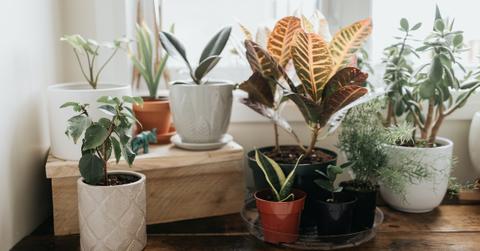
Just like human beings, plants need different kinds of self care as the winter months roll around. With fewer hours of sunlight and lower temperatures, our green babies have varying needs to stay happy and healthy. And as plant parents, taking those steps is absolutely vital, to ensure they survive the chillier months.
Green Matters compiled an extensive list of four winter plant care tips that all plant parents should know. As the days get shorter and colder, it's absolutely vital to abide by these, to ensure your leafy pals stay alive and well through the chillier months.
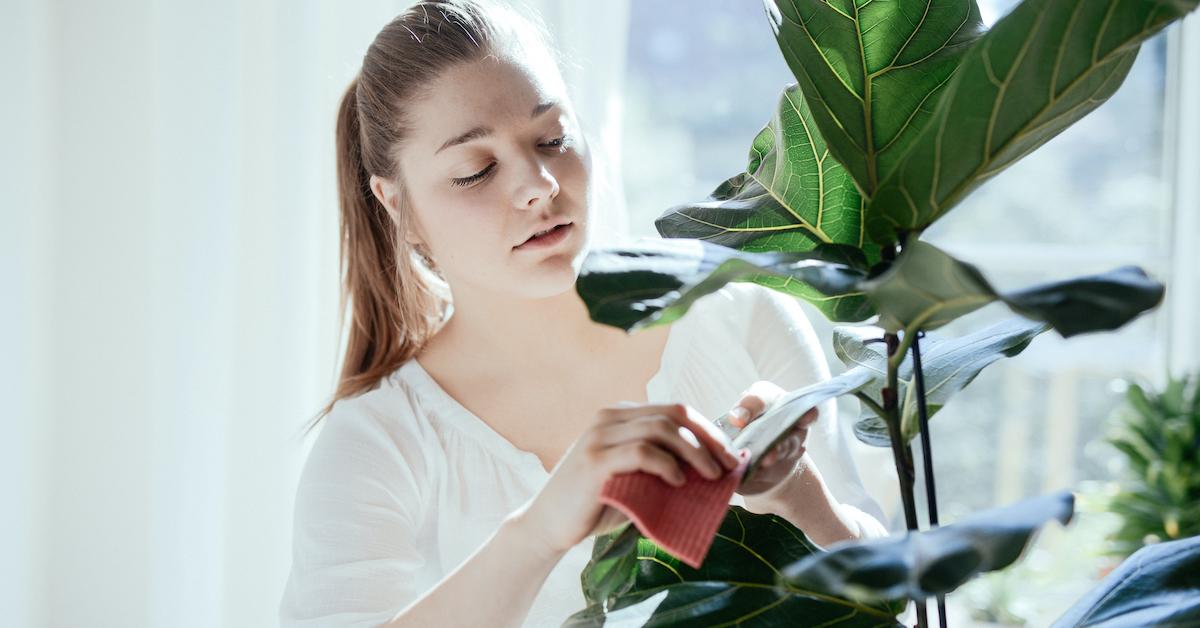
1. Scale back on watering.
Indoor plants should be watered less in the winter than in the summer, according to The Spruce, because with less daylight hours, indoor plants absorb water slower than usual, which — as a result — means they grow slower. Some plants even go completely "dormant," such as certain types of succulents, which don't need any water during the winter months, and hardly grow at all.
That being said, it's important to keep your houseplants hydrated at all times, without overwatering them, because doing so leads to root rot. The arid winter air quickly dries out the soil's surface, though, so test to see if your plant needs water by poking your finger one inch deep into the soil. If it's dry, give it a little room-temperature water.
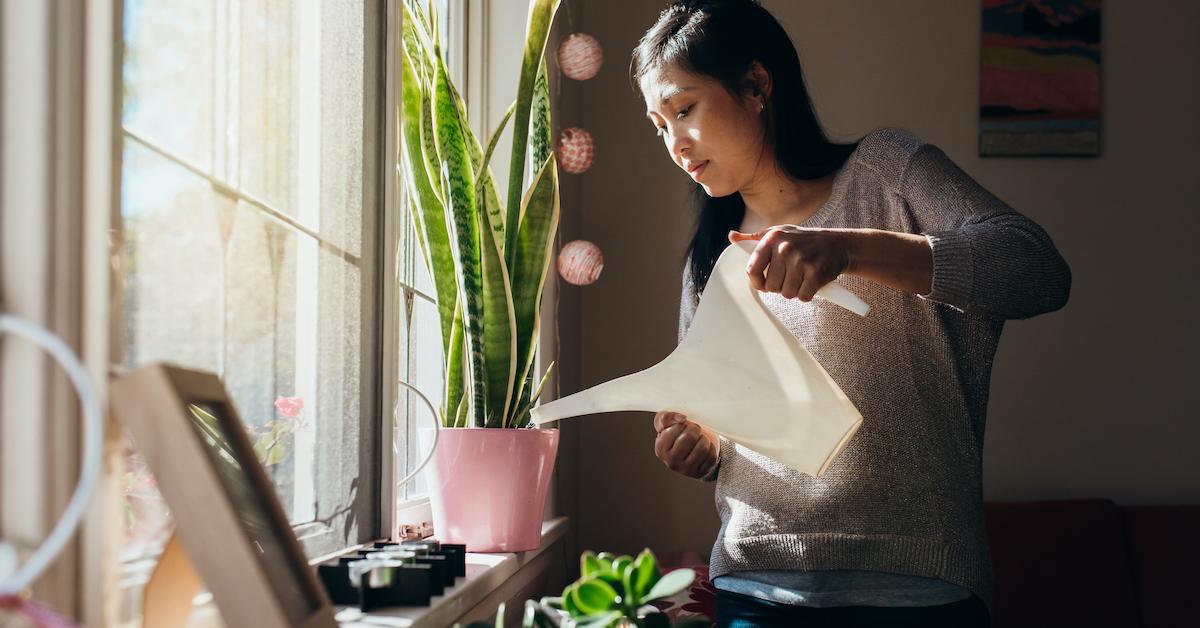
2. Help your plants combat lessened humidity.
Low humidity is a major hurdle for houseplants in the winter. Generally, plants prefer 40 to 60 percent humidity, according to Bloomscape, however, the humidity in heated homes often drops to 10 or 20 percent in the winter. You can tell if your plant needs increased amounts of humidity if the leaves look dry, brown, or yellow. To combat this problem, move your houseplants near a humidifier, if you have one, so they can enjoy its benefits.
Bloomscape also recommends clustering indoor plants together throughout the bathroom and the kitchen, so they can absorb moisture from the air, and from each other. Placing a tray of water near your plants, misting your plants regularly, and keeping your living space at 65 to 70 degrees also helps them combat the lack of moisture in the air.
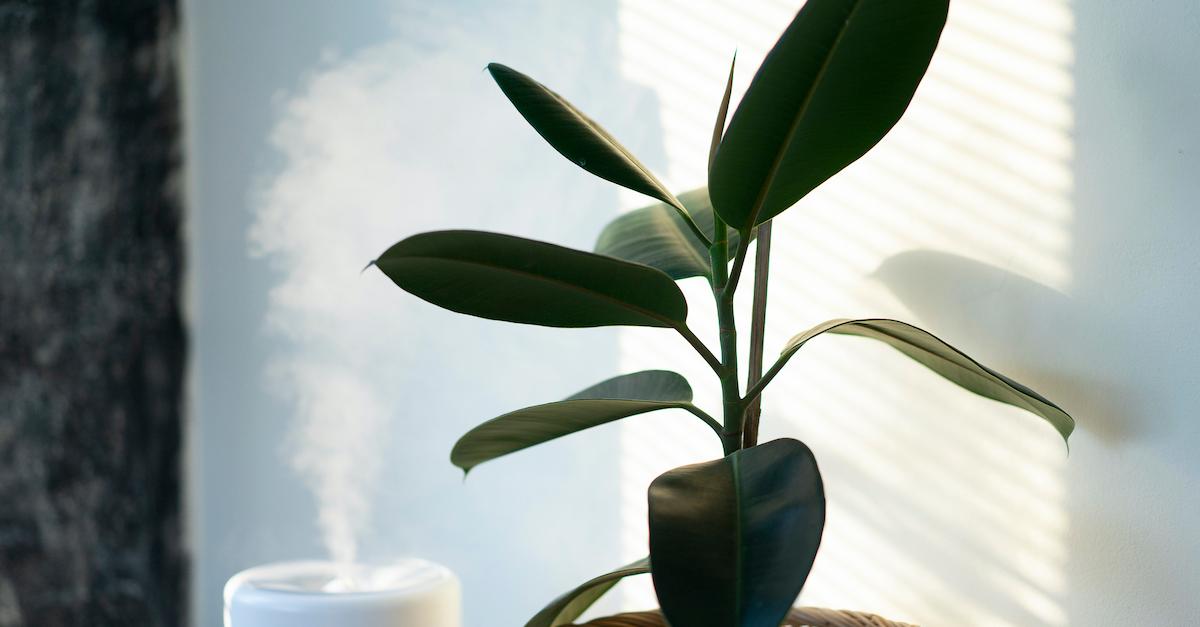
3. Keep your plants away from heaters.
Houseplants should also be kept away from any heaters, vents, or radiators. Blasts of hot air can further dry out your houseplants, which definitely isn't needed in the winter, according to the plant expert behind TikTok's plant care guru, @HangingHouseplants, aka Brian Atchue. Houseplants also need consistent temperatures of 65 to 70 degrees Fahrenheit, so don't shock them with extremely hot temperatures.
"I’m more worried about the heat in people’s homes," he told Green Matters. "If you have forced air heating it’s very dry hot air and if it blows on plants it’ll kill them."
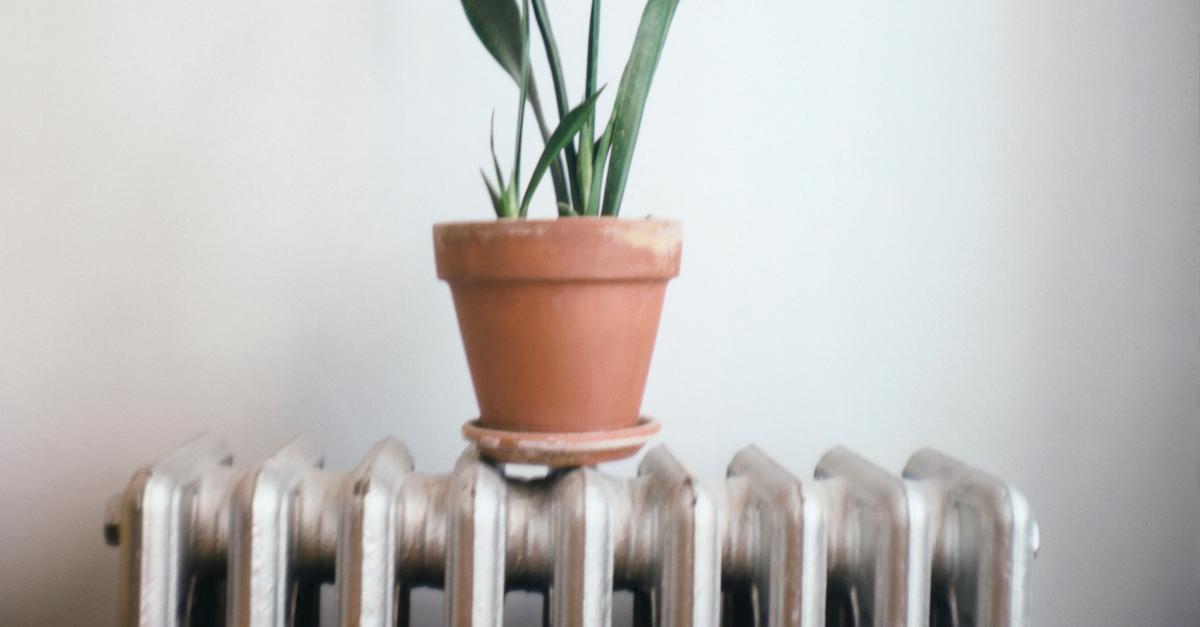
This isn't recommended.
4. Less sunlight is a major obstacle for indoor houseplants, too.
With fewer hours of sunlight, ensure your plants getting the sunlight they need by moving them closer to the window, according to Atchue. Although many worry about the window being too cold, he says this isn't a major issue. Atchue also recommends potentially investing in a specialized grow light.
Additionally, apps such as Steward analyze what your home environment is lacking for your houseplants. The app, which was created by two plant experts, create a "Plant Map" that consists of suggested growing and lighting conditions, based on a scan of your room, and "PlantDoctor" advice. They can even send you plants that are ideal for your living space's conditions. This takes the guessing game out of plant parenting, which is especially useful in the winter, when growing is harder than ever.
Keeping your houseplants alive and happy through the cold months can be quite a feat, but as long as you follow the necessary precautions, we know you're fully capable of doing so.